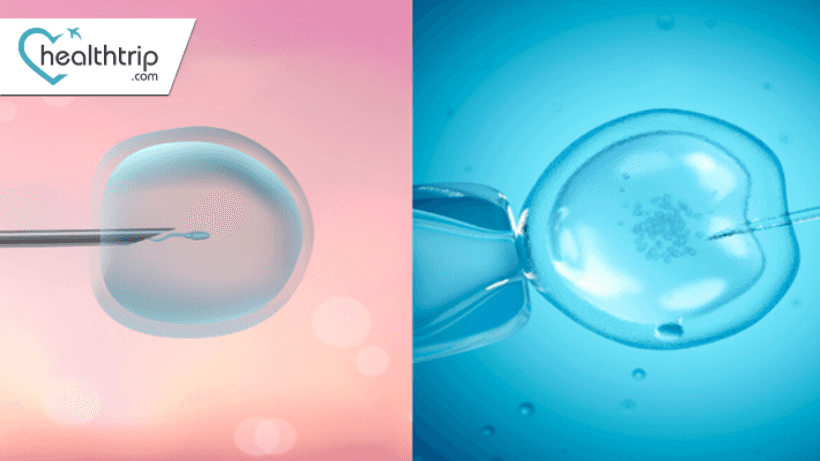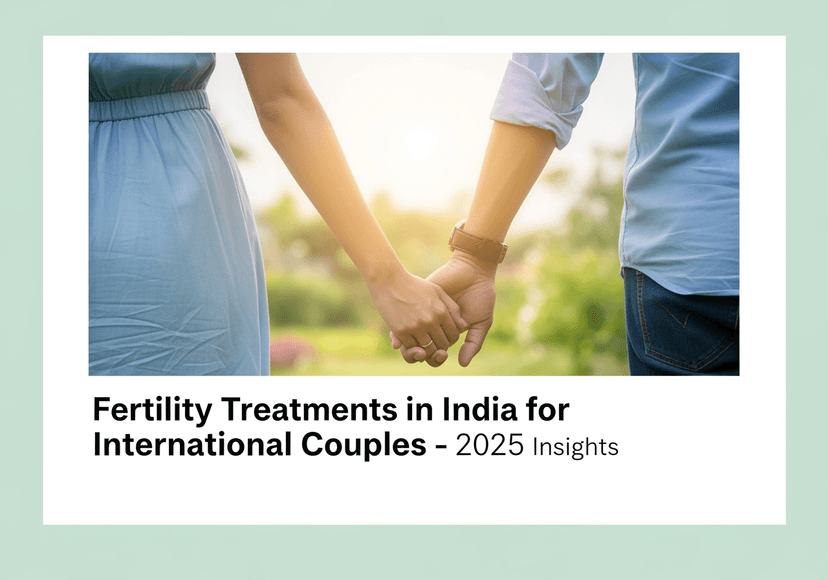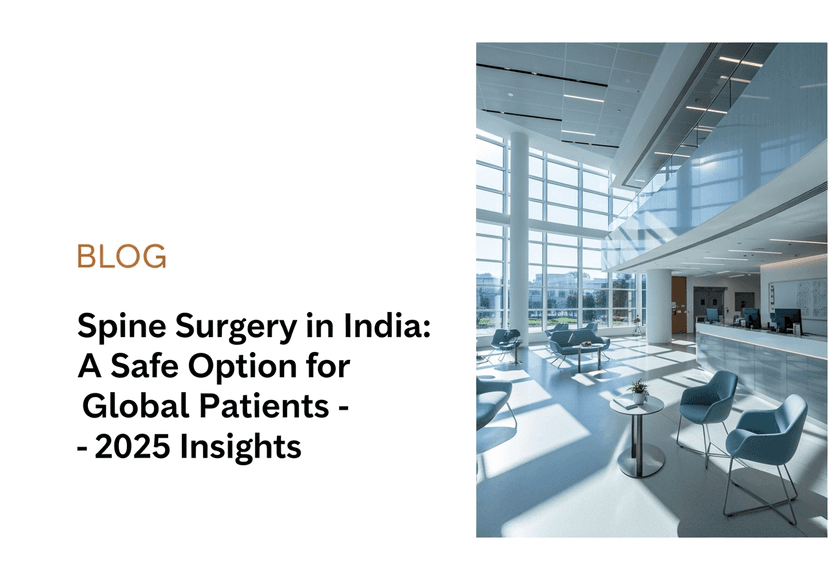
IVF vs. ICSI: Which Is Right for You?
13 Oct, 2023
 Healthtrip
HealthtripIntroduction
Infertility is a complex and emotionally challenging issue that affects millions of couples worldwide. Fortunately, there are several assisted reproductive technologies (ART) available to help those struggling with infertility realize their dreams of parenthood. In vitro fertilization (IVF) and intracytoplasmic sperm injection (ICSI) are two of the most commonly used techniques. This blog aims to provide a detailed comparison of IVF and ICSI, helping individuals and couples make an informed decision about the most suitable treatment for their specific situation.
IVF: In Vitro Fertilization
What is IVF?
In vitro fertilization (IVF) is a well-established fertility treatment that involves the fertilization of an egg by sperm outside the body. Here's how it works:
Most popular procedures in India
- Ovulation Stimulation: The woman is administered fertility medications to stimulate the ovaries to produce multiple eggs.
- Egg Retrieval: Once the eggs are mature, they are retrieved from the woman's ovaries via a minimally invasive surgical procedure.
- Sperm Collection: Sperm is collected from the male partner or a sperm donor.
- Fertilization: The eggs and sperm are combined in a laboratory dish, and fertilization occurs.
- Embryo Culture: The fertilized embryos are cultured for several days until they reach a suitable stage for transfer.
- Embryo Transfer: One or more embryos are transferred into the woman's uterus, with any remaining embryos being frozen for future use.
When Is IVF Recommended?
IVF is a versatile option for various infertility issues, including:
- Blocked fallopian tubes: When the woman's fallopian tubes are blocked or damaged, preventing the egg and sperm from meeting.
- Endometriosis: In cases of severe endometriosis that affects fertility.
- Unexplained infertility: When the cause of infertility remains unknown after initial investigations.
- Male factor infertility: IVF can be used in cases of low sperm count or sperm motility issues.
ICSI: Intracytoplasmic Sperm Injection
What is ICSI?
Intracytoplasmic sperm injection (ICSI) is a specialized form of IVF. It involves the direct injection of a single sperm into an egg to achieve fertilization. The process of ICSI includes the following steps:
Wellness Treatments
Give yourself the time to relax
Lowest Prices Guaranteed!

Lowest Prices Guaranteed!
- Egg Retrieval and Sperm Collection: Similar to IVF, eggs are retrieved from the woman and sperm is collected from the male partner or a donor.
- Sperm Injection: A single, healthy sperm is selected and injected directly into an egg using a microneedle.
- Fertilization Check: The embryologist monitors the egg for fertilization and cell division.
- Embryo Transfer: Once fertilization is confirmed, the resulting embryo is transferred into the woman's uterus.
When Is ICSI Recommended?
ICSI is typically recommended in cases where conventional IVF may not be successful due to male factor infertility issues. These issues include:
- Low sperm count: ICSI can be used when the sperm count is too low for conventional IVF.
- Abnormal sperm morphology: If the sperm has structural abnormalities.
- Poor sperm motility: When the sperm cannot swim effectively.
- Previous IVF failures: ICSI may be recommended when previous IVF attempts have not resulted in successful fertilization.
IVF vs. ICSI: A Comparison
Success Rates
IVF and ICSI both have high success rates, but ICSI is generally more effective in cases of male factor infertility.
Cost
ICSI is usually more expensive than conventional IVF due to the additional labor and expertise required for sperm injection.
Procedure Complexity
ICSI is a more complex procedure, as it involves micromanipulation techniques for sperm injection. IVF is less invasive and may be preferred in simpler cases.
Risk of Genetic Abnormalities
ICSI has been associated with a slightly increased risk of genetic abnormalities in offspring, possibly due to the selection process of individual sperm.
Personalization
The choice between IVF and ICSI should be tailored to the specific needs of the couple and their fertility issues. Consultation with a fertility specialist is crucial to make an informed decision.
Risks and Considerations
Multiple Pregnancies
Both IVF and ICSI can result in multiple pregnancies, which carry increased risks for both the mother and the babies. It's crucial for couples to discuss the number of embryos to transfer with their healthcare team to minimize this risk.
Emotional and Psychological Stress
Dealing with infertility and undergoing fertility treatments can be emotionally and psychologically taxing. Both IVF and ICSI may require multiple cycles, and the emotional toll should not be underestimated. Support from a mental health professional can be invaluable during this journey.
Timing and Age
The success of fertility treatments is often influenced by the woman's age. Younger women tend to have higher success rates. Couples should be aware that time is a factor in fertility treatments, and delaying action may reduce the chances of success.
Preparing for IVF or ICSI
Before deciding on IVF or ICSI, it's essential to take several preparatory steps:
- Consult with a Fertility Specialist: Seek the expertise of a reproductive endocrinologist or fertility specialist. They will conduct a thorough evaluation to identify the underlying causes of infertility and recommend the most suitable treatment.
- Lifestyle Changes: Consider adopting a healthy lifestyle, including maintaining a balanced diet, regular exercise, and avoiding harmful habits such as smoking or excessive alcohol consumption.
- Emotional Support: Infertility can be emotionally challenging. Couples may benefit from seeking support from therapists, support groups, or fertility counselors to cope with the stress and emotions involved.
- Financial Planning: Both IVF and ICSI can be costly, and couples should explore their options for financing the treatments. Some insurance plans may cover part of the expenses.
- Understanding the Process: Gain a comprehensive understanding of the entire fertility treatment process, including the specific steps involved in IVF or ICSI.
- Second Opinions: It's often beneficial to seek a second opinion to ensure that you're making the best decision for your unique situation.
Making the Decision
The choice between IVF and ICSI ultimately depends on the underlying causes of infertility. It's a decision that should be made in close consultation with a fertility specialist who can provide expert guidance. Factors to consider include the severity of male factor infertility, the cost of the treatment, emotional readiness, and the potential for multiple pregnancies.
Final Thoughts
Infertility is a challenging journey, and IVF and ICSI offer hope and opportunities for couples seeking to start or expand their families. Each treatment has its advantages and considerations, and the right choice depends on individual circumstances. The support of a skilled fertility team and open communication between couples are crucial in making this important decision. Remember, the ultimate goal is to achieve a successful pregnancy and the dream of parenthood. It may be a challenging path, but with the right support and treatment, it can be a rewarding one.
How can we help with the treatment?
If you're on the lookout for treatment in India, Thailand, Singapore, Malaysia, UAE, and Turkey, let Healthtrip be your compass. We will serve as your guide throughout your medical treatment. We'll be by your side, in person, even before your medical journey commences. The following will be provided to you:
- Connect with renowned doctors from a network spanning 35+ countries and access the world's largest health travel platform.
- Collaboration with 335+ top hospitals , including Fortis and Medanta.
- Comprehensive treatments from Neuro to Cardiac to Transplants, Aesthetics, and Wellness.
- Post-treatment care and assistance.
- Teleconsultations at $1/minute with leading surgeons.
- Trusted by 44,000+ patients for appointments, travel, visa, and forex assistance.
- Access top treatments and packages, such as Angiograms and many more.
- Gain insights from genuine patient experiences and testimonials.
- Stay updated with our medical blog.
- 24/7 unwavering support, from hospital formalities to travel arrangements or emergencies.
- Pre-scheduled specialist appointments.
- Prompt emergency assistance, ensuring safety.
Our success story
Related Blogs

India’s Best Eye Hospitals for International Patients – 2025 Insights
Explore india’s best eye hospitals for international patients – 2025

Benefits of Combining Medical Treatment with Wellness Retreats – 2025 Insights
Explore benefits of combining medical treatment with wellness retreats –

Fertility Treatments in India for International Couples – 2025 Insights
Explore fertility treatments in india for international couples – 2025

How Nepalese Patients Can Access Advanced Healthcare in India – 2025 Insights
Explore how nepalese patients can access advanced healthcare in india

Spine Surgery in India: A Safe Option for Global Patients – 2025 Insights
Explore spine surgery in india: a safe option for global

Affordable Orthopedic Treatment in India: What to Expect – 2025 Insights
Explore affordable orthopedic treatment in india: what to expect –










